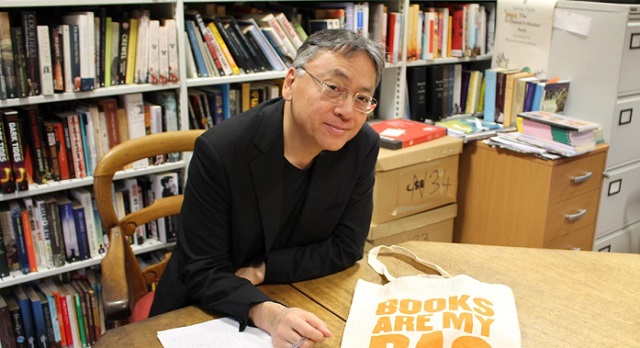
Londres, United Kingdom | AFP | Kazuo Ishiguro, the 62-year-old British novelist of Japanese origin who won the Nobel Prize for Literature on Thursday, once wanted to be a rock star, then became a social worker and only later in life turned to writing.
Born in Japan and raised in England speaking Japanese at home, his writing has consistently explored this duality, something he credits with aiding his appeal.
“I’ve always looked at the world partly through my parents’ eyes… (and) had a part of me that was Japanese,” he said on Thursday in the garden of the north London home he shares with his wife.
“That was quite good for me as a writer at the time when I was writing, because literature started to become very international.”
A prodigious writer since the early 1980s, he has penned eight books — as well as scripts for film and television — which have been translated into dozens of foreign languages and won numerous awards.
But the author has remained more reclusive than some of his contemporary peers.
Ishiguro is still best known for “The Remains of the Day”, which landed the Man Booker Prize for Fiction in 1989 and was turned into an Oscar-nominated film starring Anthony Hopkins and Emma Thompson.
He later admitted to writing the book in a prolific four-week period.
He has also found fame more recently with “Never Let Me Go”, his 2005 novel, and “When We Were Orphans”, published in 2000.
In awarding their prize on Thursday, the Nobel committee noted Ishiguro was most associated with themes of memory, time and self-delusion.
Despite his enviable success, Ishiguro has appeared modest in interviews.
“I’m not a very inspired person,” he told the Financial Times in 1995. “I don’t have a lot of ideas.”
Asked what made novelists choose their often precarious occupation, he replied: “I won’t say writers are crazy people because I don’t care for stereotypes. But something is sufficiently out of line in their structure as people.”
BREAKING NEWS The 2017 #NobelPrize in Literature is awarded to the English author Kazuo Ishiguro pic.twitter.com/j9kYaeMZH6
— The Nobel Prize (@NobelPrize) October 5, 2017
 The Independent Uganda: You get the Truth we Pay the Price
The Independent Uganda: You get the Truth we Pay the Price





